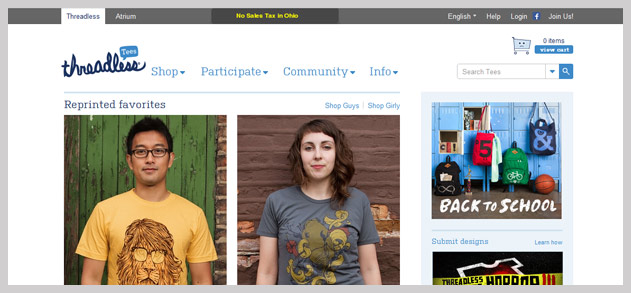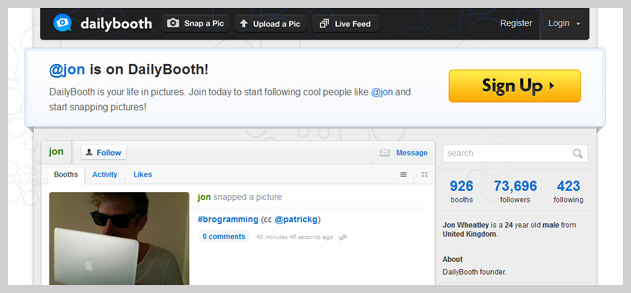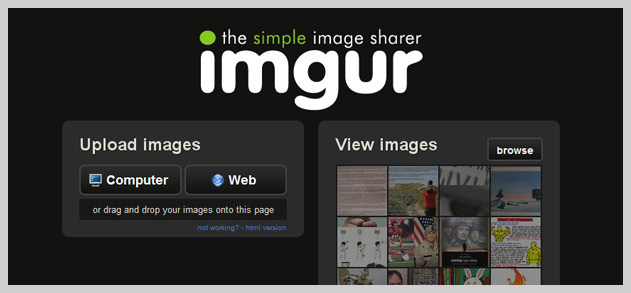This remarkably specific list contains several companies whose founders were smart enough to notice the activities of a certain online community and recognize the potential for a new business. Sometimes the most difficult part of entrepreneurship is recognizing a need when you see one, and all of these founders were able to recognize a very specific one.
This list is definitely not comprehensive. There are probably hundreds of successful businesses that have started this way, and this list is merely a start to the conversation.
In no particular order:
Threadless. The first chapter of Jake Nickell’s book on the founding of Threadless is called “The Accidental Business”. In it, he explains how he was part of a small online design scene, experimenting with computers, code, and art. He posted often on the forums on dreamless.org. One day, the New Media Underground Festival held a competition on the boards to design a t-shirt for the fest. Jake won the contest, and had an idea. In an IM conversation, he told his friend Jacob DeHart about the idea: start an ongoing competition for t-shirt designers where the best designs would be printed and available for sale. The first competition was posted on the Dreamless forums, and it quickly evolved into an independent business. Threadless was founded in 2000. The term “crowdsourcing” wouldn’t even be coined until six years later.

DailyBooth. Jon Wheatley, one of the founders of DailyBooth, tells the fascinating history behind the startup in one long, excellent blog post. In it, he details his specific inspiration for the site. Back in 2007, the internet became fascinated by a series of videos uploaded to YouTube in which a person will take a single photograph of themselves every day for several years. They edit the photos together into a video, add some cool music, and the end result is a visual evolution of a single identity. The most famous example of this is probably Noah. Jon thinks these videos are great, and he thinks more people would want to jump on this trend, if only they had a tool to ease the process. DailyBooth is born. The main idea behind DailyBooth remains the same, but with the parallel success of Twitter, it is now more popularly described as Twitter with images instead of 140 characters, rather than a tool to collect pictures and combine them into a video. As a sidenote, online communities were particularly important to the founding of DailyBooth, as that is where the founders first met.

Flippa and 99Designs. Sitepoint launched in 1999, and its content has become an important resource for web designers and developers. The Sitepoint forums are humming with activity. It is especially interesting to see how closely the founders of Sitepoint have monitored their forums, and how quickly they can recognize a business opportunity when they see one. When they noticed that their users were downloading and printing their content, they began publishing books. When they noticed that people were using their forums to buy and sell websites and domains, they set up Sitepoint Marketplace, which was eventually spun off as Flippa.com. The story of 99designs begins much the same way as Threadless. The Sitepoint forum users were throwing impromptu competitions to see who was the best logo designer. Someone would create a fake project, 20 or 30 designers would enter, and a winner would be crowned. This went on for a while until someone who actually need a real logo offered to create a competition, and pay the winner $100. Sitepoint started charging users $20 to post a project in the forums, and in 2007, they spun that section off as 99Designs. Earlier this year, 99Designs announced the first outside investment in any of the Sitepoint properties, for $35 million.

Imgur. Two and a half years ago MrGrim was a reddit user like any other. Reddit sends massive amounts of traffic across usually to simple, funny pictures. MrGrim and the rest of the community were tired of photobucket and imageshack. They were tired of bandwidth limits and being forced to compress their files. So MrGrim built a solution: an image host that required none of those restrictions while adding simple things like crop, resize, and rotate. He posted about his new hosting service, Imgur, and that post went on to win reddit’s Best Submission of the Year 2009. In 2011, reddit is even more popular and it seems like almost every single image post on links to Imgur. As of this writing, Imgur is getting 6,320,064,355 image views per month.

- Concept art where the concept is “Surprise! I’m a monster!”
- Harrison Ford character names
- The hand dies first

Reminds me of I Can Has Cheezburger. The original cat-focused site was also born out of people posting a ton of cat pics with captions on 4chan.